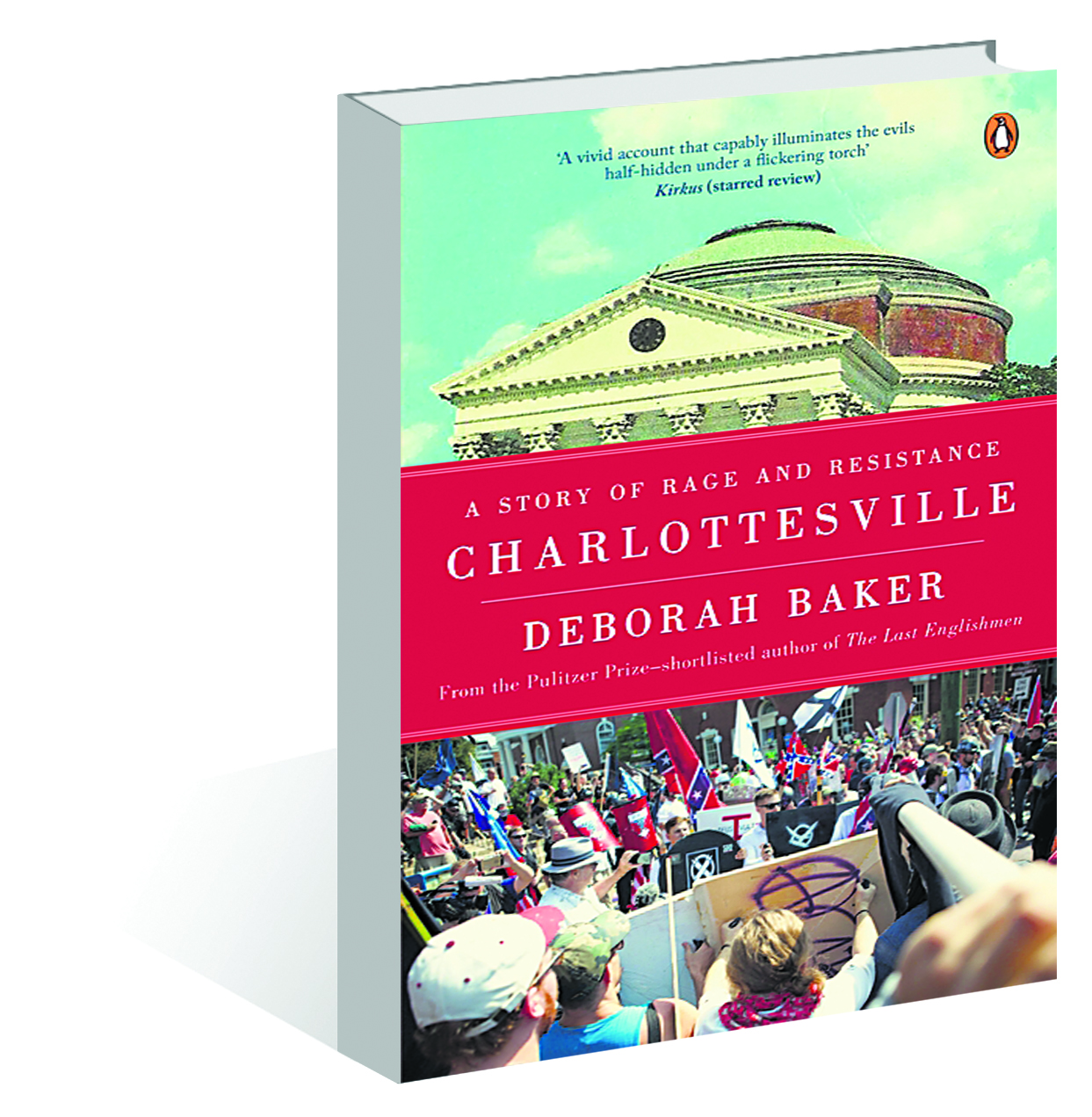Clash of histories
It was the perfect Mother’s Day weekend in Charlottesville, Virginia (USA), on August 12, 2017. The sun was out and the parks were filled when a white supremacist mob, holding torches, went on a rampage. Protesting the decision to remove the statue of Confederate hero General Robert Lee, the men shouted, “They will not replace us,” and ran amok, killing a young woman and injuring many.
 Charlottesville: A Story of Rage and Resistance by Deborah Baker. Penguin Random House. Pages 464. Rs 1,299
Charlottesville: A Story of Rage and Resistance by Deborah Baker. Penguin Random House. Pages 464. Rs 1,299
Award-winning author Deborah Baker’s newest book, ‘Charlottesville: A Story of Rage and Resistance’, revisits this dark chapter in American history in a bid to find a way forward. The administration failed to act and the racial divide that the town had lived with for centuries was laid bare. “There were not, as President Trump said, ‘very fine people on both sides’,” she writes.
“I couldn’t stop thinking about it,” she says in the introduction. “Watching the footage of the August rally and the torch march that preceded it, I was spooked by how gleeful these men looked, and alarmed at how young they were. Were they, like the election of Trump, a harbinger of some future I was too old or ill-equipped to grasp?”
A young woman marching against them was mowed down by a car that rammed into the crowd. The boy who drove into them had a picture of Adolf Hitler by his bedside.
Cataclysmic events don’t come out of the blue, writes Baker, the ground needs to be prepared. The only way forward is to look back. Her journey makes the book compelling, poignant and, in Trumpian times, vital reading. She does it intellectually, with precision and passion. It is political, and also personal.
In making sense of the incident, it also maps a world that has changed. “I say at the end of the book, maybe this isn’t my world to make sense of any longer,” she says in a Zoom conversation from New York. “Maybe I have to look to younger people with more fight in them than I have, to make sense of it.”
Baker pieces together the present by refracting it through Virginia’s past. Charlottesville is the heart of conservative America. It also has a deep association with Thomas Jefferson, America’s founding father who drafted the Declaration of Independence. He lived in Monticello near Charlottesville.
In finding answers, she re-examines the legacy of the men with “mythical” narratives. Jefferson fought for freedom, but also had a relationship with Sally Hemming whom he held in bondage. General Lee fought to keep people enslaved.
Baker explores the history of racism — and why the decision to remove the statues triggered such a violent reaction. “The statues’ white defenders were willing to allow black people their history, so their own could remain untouched,” she writes. “They imagined these two histories might peacefully coexist, one ugly and painful, the other framed by flowers.”
Unlike her earlier books, this meant rambling through Twitter threads of alt-right followers, listening to council debates. She tells the story through activists who fought and witnessed their city being torn apart. The feisty Zyahna Bryant, a student, kicked off the debate with a petition to remove Lee’s statue. Emily Gorcenski, a data scientist, is anti-fascist. “What was hardest for me was just gaining their trust,” Baker says.
She juxtaposes their story for setting history right with Richard Spencer, the father of the phrase ‘alt right’, and the man who led the mob. Stark, vivid, fast-paced, Baker keeps you hooked. She found that this was not the first time that Charlottesville had been the ground to begin a race riot. Poet Ezra Pound — with his fascination for Mussolini — had the same idea as alt-right Spencer. Pound tried to stoke the fires after the Supreme Court ruled for integration of schools in 1954. He was opposed to it and his protege John Kasper, a graduate from Columbia University, went to Charlottesville to “give fascism an all-American face”.
“A lot of the ideas that Spencer was spreading we now have coming from mainstream media — white ethnostate, the destruction of all the policies designed to equal the playing field,” she says. “We are resegregating ourselves, asking people to self-deport.”
Three years after Charlottesville, another mob, this time chanting “Stop the steal”, stormed Capitol Hill to try to prevent the Congress from ratifying Joe Biden’s win. There is a direct link, believes Baker. Democracy, a resident told her, is a delicate thing. “If you lose your vigilance, if you don’t tend it, the world can turn on you. Just like that,” she quotes the resident.
“I don’t know another way of saying it,” another resident confided. “We’re in the shit. America is Charlottesville now. Everywhere is Charlottesville.”
The rise of majoritarianism and the mainstreaming of the fringe are real fears in America, and at home.
It is this idea that makes the book important. It is not easy reading — especially as it doesn’t offer neat answers or a way forward. But there is hope, believes Baker. “I live in New York. It’s hard not to take a kind of disproportionate joy in Zohran Mamdani’s campaign.”
Not his usual demographic, Deborah Baker was one of the many who volunteered for his campaign. Her husband, author Amitav Ghosh, posted a picture of them celebrating Mamdani winning the Democratic ticket to run for the mayor of New York.
But this is just the beginning.
— The writer is a literary critic
Features